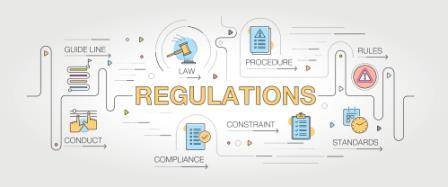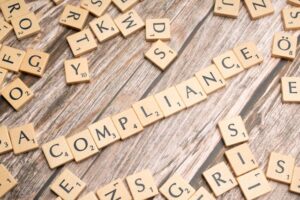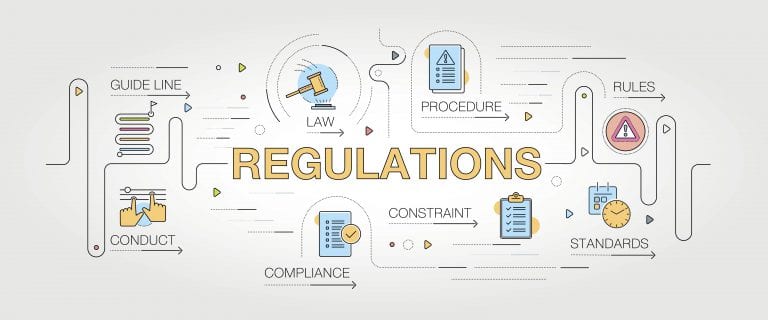By Rich Hamilton, Director of Marketing & Product Development

When did the National Do Not Call Registry Begin?
In 2003 after the signing of the Do Not Call Act, the FTC and FCC jointly created the National Do Not Call Registry (NDNCR) which is managed by the FTC. Since the law applies to all 50 states, DC and US territories, many know it as the Federal DNC List. Any company that wants to sell their product using the telephone must obtain a Subscription Account Number (SAN) which many times will require paying a fee. This SAN can only be shared with 3rd party telemarketing companies that will be selling on behalf of the company.
What is the purpose of the National DNC Registry?
The purpose of the list was to give consumers a way to stop unsolicited telemarketing calls to their phone number. Consumers can ask to have their telephone number placed on the list by either visiting the website or calling a toll-free number. The process is free. Within 31 days, the newly added number must be removed from any non-exempt telemarketing campaigns. Of course, just like every law, there are exceptions.
National Do Not Call exemptions
There are several types of calls that may be exempt from scrubbing against the NDNCR such as:
- Calls that are placed using an Established Business Relationship (EBR)
- Calls that are placed where Expressed Written Consent was given
- Calls that are on behalf of tax-exempt non-profit organizations
- Calls that are placed by a telemarketer in which the telemarketer has a personal relationship with the recipient of the call (limited to families, friends, and acquaintances) or
- Calls that are placed which are not commercial or do not include unsolicited advertisements
Please note that even if you find that your company or program is exempt under the definitions provided by the federal law, you may not be exempt under the definition according to the state law. Since this can become very complex, looking at the definition for each state, I would recommended using a tool such as the USA DNC Regulatory Guide to easily find all that information in one online source.
Are nonprofit organizations and associations exempt?
Now that we understand the background of the National Do Not Call Registry, its purposes and a high level look at the exemptions, let’s see how they apply to nonprofit or not-for-profit organizations and associations. In many cases an association is set up as a nonprofit organization.
For the most part, nonprofit organizations are exempt from scrubbing against the Federal DNC list. To determine whether or not your organization meets this requirement, it is suggested that you consult an attorney to complete a careful assessment of your specific business practices.
As we can see from the list above, there is no specific exemption for associations. If an association (that is a for-profit organization) wants to make telemarketing calls, they must scrub against the Federal DNC List unless it is determined that the campaign is exempt based on the list above.
Much of the work that we do for associations is focused on renewing members that have let their membership expire. These campaigns are known as winback or lapsed member campaigns. These types of campaigns rely heavily on the definition of EBR according to federal law and the associated state law. According to the FTC, an established business relationship between a seller and consumer exists within 18 months of the transaction (purchase, rental, or lease of goods). There are some states that have timing restrictions that are even more strict. It is important to evaluate which states you plan on calling to winback your lapsed memberships. Make sure you understand whether or not you have an EBR which will drive whether or not you need to scrub against the National Do Not Call Registry.
Telemarketing Regulations including TCPA Compliance, DNC Rules, Holiday Restrictions and so much more can be very hard to keep track of. Especially since there are both federal and state laws to consider and the laws are constantly changing. A thorough analysis of each campaign is extremely important to ensure all laws are being followed. We have found a fantastic tool called the USA DNC Regulatory Guide which is an online source of all federal and state laws that is updated in almost real time and then we are notified when a change is made.
If you have any further questions about how telemarketing law applies to nonprofit organizations or associations, please feel free to reach out to me at rich.hamilton@qualitycontactsolutions.com.
Rich Hamilton is the Director of Marketing & Product Development for Quality Contact Solutions, a leading outsourced telemarketing organization. Rich works tirelessly to bring new products to the teleservices and call center market. Rich is also the creative powerhouse behind executing on a wide spectrum of marketing initiatives for the organization. In addition, Rich is a telemarketing compliance guru with a Customer Engagement Compliance Professional (CECP) certification to back it up . Rich can be reached at rich.hamilton@qualitycontactsolutions.com or 516-656-5105.








